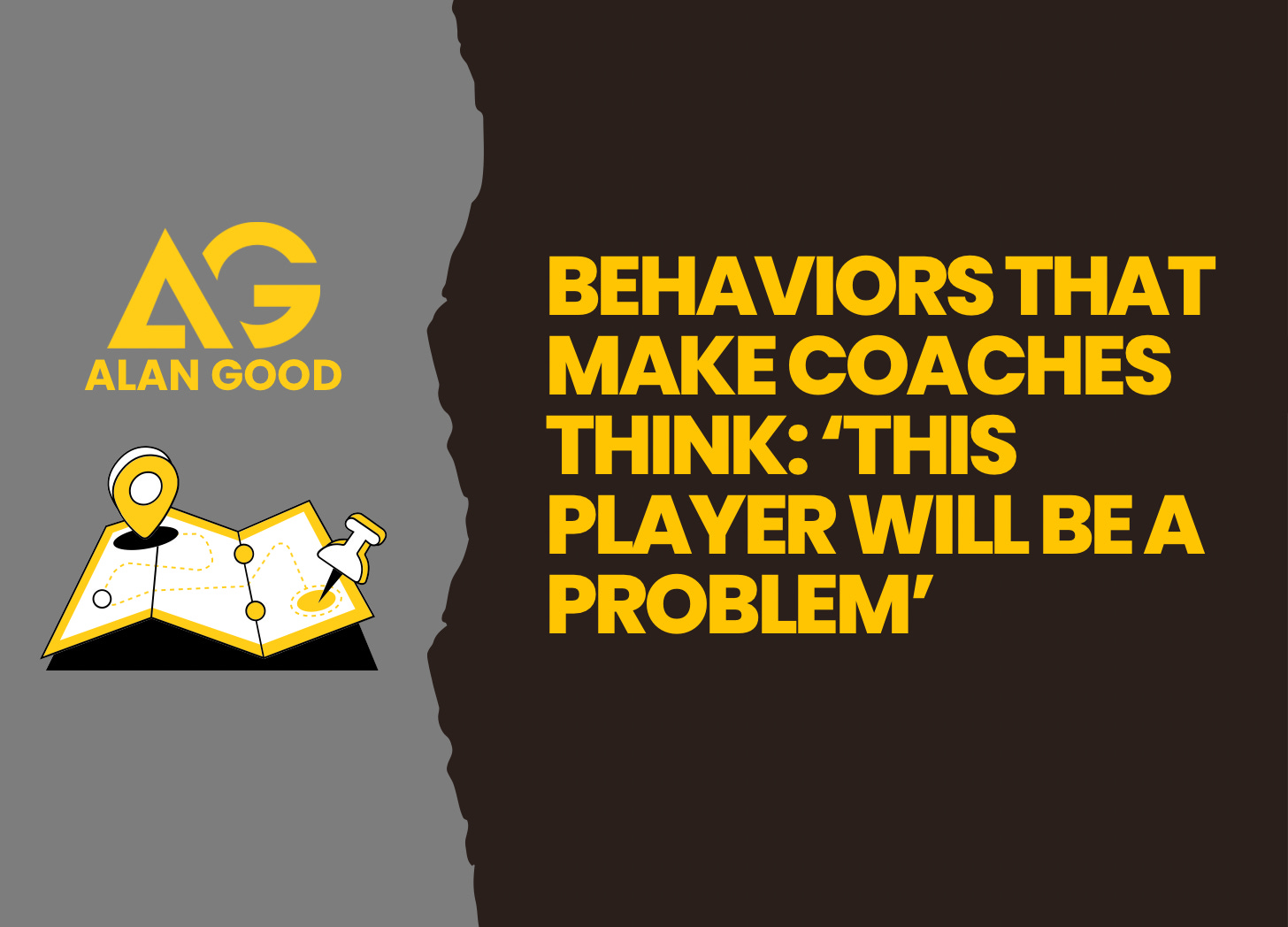The 7 visit red flags that kill your chances
What coaches are really watching when you’re on campus
Official and unofficial visits begin this week for the class of 2027.
You want to make yourself memorable… but for the right reasons.
Just like you, coaches are looking for the "no" as well as the "yes."
Red flags during visits are their instant elimination tool.
These aren't about being perfect. They're about avoiding behaviors that make coaches think: "This player will be a problem for four years."
The 7 Visit Red Flags
Red Flag #1: You're difficult to work with before you even arrive
You’re asked to send most recent transcript. You take a week to respond.
Your host texts about overnight logistics. You leave her on read.
The coach needs your W-9. Radio silence.
If coaches have to repeatedly chase after you for basic paperwork, they're getting a preview of your college behavior.
There's way more admin in college than high school. They don't want a player they'll have to hunt down for four years.
Red Flag #2: You let your parents run your visit
You sit in the corner while mom asks about academic support.
Dad jumps in when coaches ask about your goals.
Your parents answer questions directed specifically at you.
Message to coaches: this player can't handle independence.
College is about learning to advocate for yourself. If you can't do it on a visit, how will you handle four years away from home?
Red Flag #3: You give vague answers to questions
"What interests you about our program?"
*Shrug*
"How do you respond when things don’t go your way?"
Not sure.
"Any questions about our training?"
Don’t think so!
Are you not serious? Do you not care?
Coaches invest significant time and money in visits. They want players who are genuinely engaged with the process.
Red Flag #4: You lead with money talk
First conversation with the head coach: "So what kind of scholarship are we looking at?"
It's necessary to discuss finances during a visit, once an offer has been made.
But if you lead with it, you give the impression that you’re shopping instead of looking for the right fit.
Coaches want players who are excited about the program first, money second.
Red Flag #5: Every question is about you
"How much playing time will I get?"
"What gear do players receive?"
"How nice are the facilities?"
Zero questions about the team, the culture, or how you can contribute.
This sends a clear message: "What's in it for me?" instead of "What can I bring to this team?"
Be curious about them, not just yourself.
Red Flag #6: You clearly haven't done basic research
"What majors do you offer?"
"How big is the school?"
”What conference are you in?”
Visits should be about discovering what you can't learn online, or on the calls you’ve been doing since June 15.
If you haven't researched basic information available on their website, it signals you're not serious about their program.
Red Flag #7: You lie about other offers
There's a temptation to inflate offers you're getting - or make them up entirely - to try to get a school to increase theirs.
Dangerous game.
If you get caught, you'll be dropped by everyone who finds out about it.
Field hockey is a small community. Coaches talk - even rival ones.
Tread carefully.
One Thing That Works
Approach your visit like you're already part of the team.
Not entitled or presumptuous. But prepared, curious, and genuinely engaged.
Players who belong don't need their parents to speak for them. They ask thoughtful questions because they're genuinely interested in the answers. They're responsive with logistics because that's what teammates do.
They're not performing or trying to impress - they're being authentic while showing they can handle college-level responsibility.
This mindset shift prevents almost every red flag on this list. When you show up like you belong, coaches start picturing you in their program instead of looking for reasons to eliminate you.
Reality Check
Coaches are watching everything during your visit.
How you interact with their current players. Whether you're engaged during down time. If you can handle basic logistics without your parents stepping in.
They're not just evaluating your hockey ability - they're deciding if you‘re someone they want to be around for four years.
Be professional, be prepared, and let your genuine interest in their program show through.
🚨 Class of 2027 🚨 - If you're looking for deeper help in this area, try The Commitment Countdown, a 75-minute video course with actionable frameworks for navigating coach conversations, decoding true intentions, and confidently handling offers.


